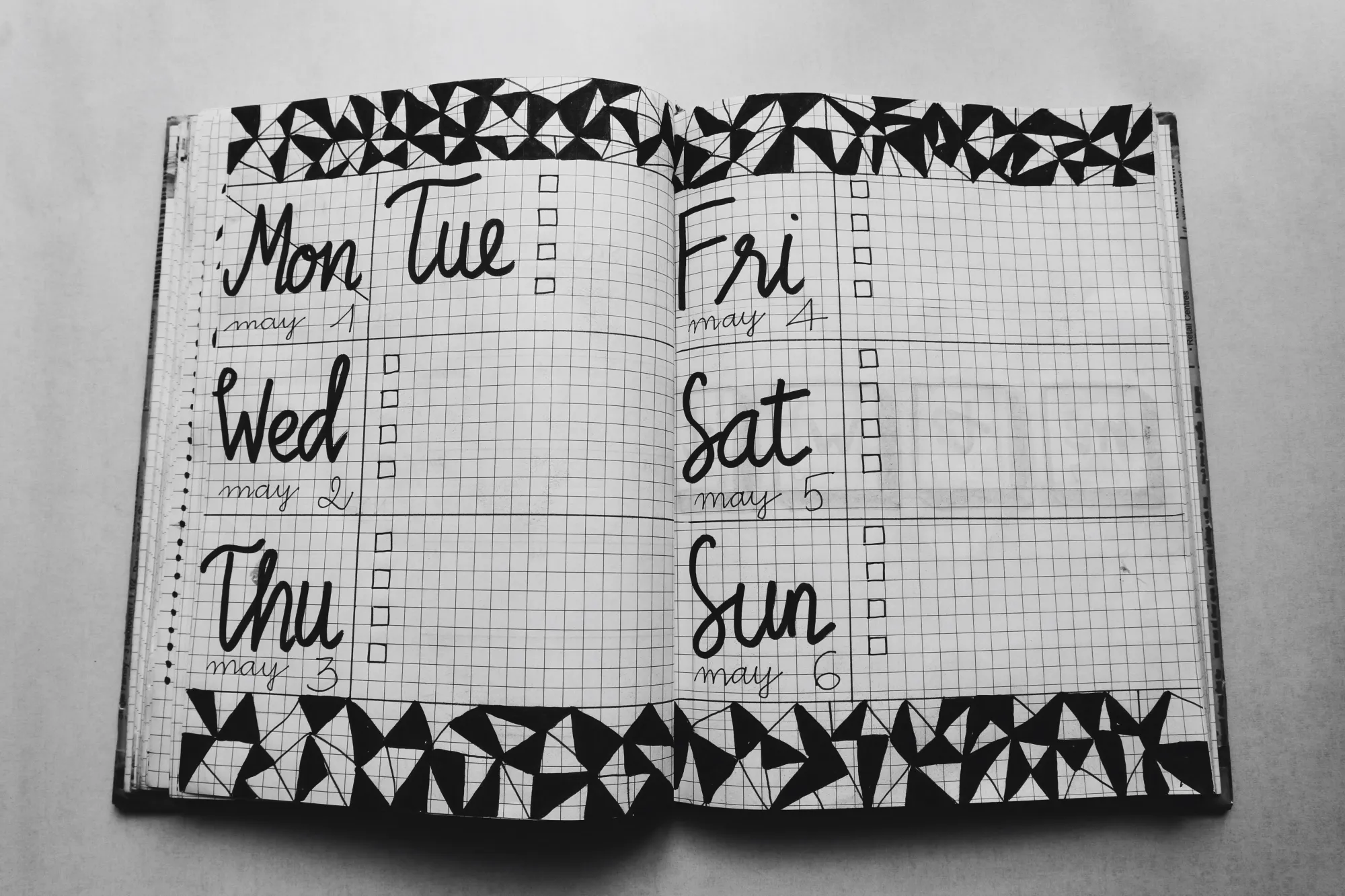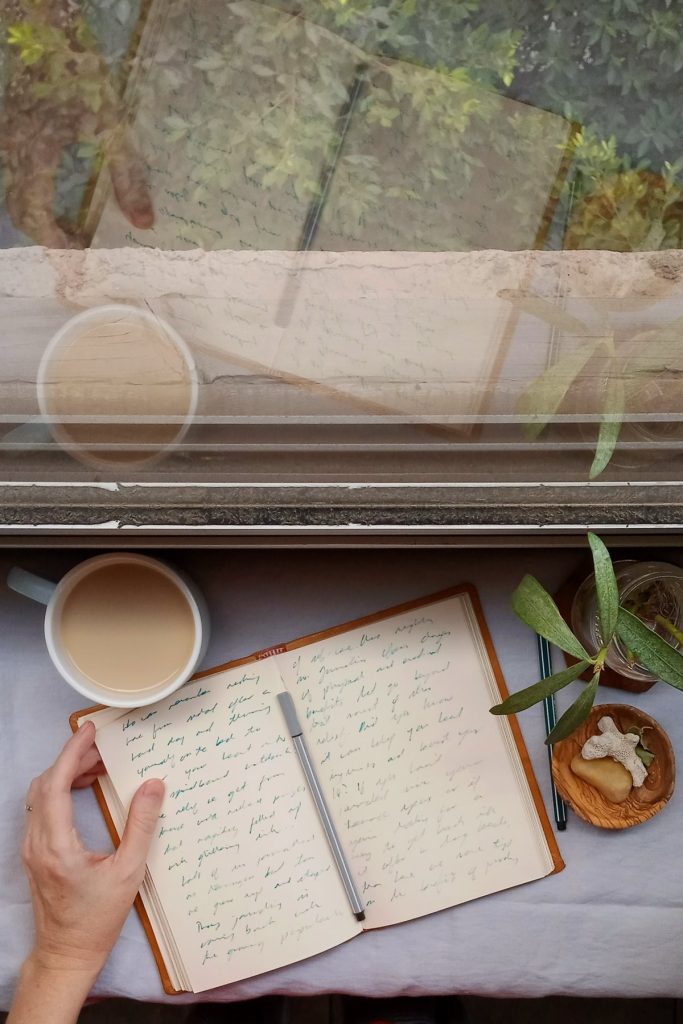Personal Diary: The Therapeutic Power of Writing in Our Days

Discovering the Benefits of Personal Journaling
In a fast-paced world where stress is unavoidable, people are seeking healthy ways to cope. Personal diaries are emerging as a popular tool for emotional well-being and mental clarity. These pages provide a safe space to express thoughts, feelings, and experiences, allowing individuals to process their emotions more effectively.
Why Writing is Therapeutic
Writing in a personal diary offers numerous therapeutic benefits, enhancing mental and emotional health in compelling ways. For instance, studies have shown that individuals who journal regularly are less likely to experience stress and anxiety compared to those who do not. Let’s explore a few of these advantages in more detail:
- Emotional Release: Articulating thoughts can lighten the mental burden. When you write about your feelings, it helps to clarify and diminish the intensity of emotions. For example, journaling about a difficult day at work can help you process anger or frustration more effectively, making it easier to move on.
- Self-Reflection: Journaling promotes a deeper understanding of one’s emotions. This reflective practice can lead to greater self-awareness and personal growth. For example, when you jot down recurring themes or feelings in your entries, you can identify patterns that may influence your behavior in relationships or career choices.
- Stress Reduction: Putting pen to paper can significantly lower anxiety levels. According to research from the University of Rochester, expressive writing can shut down the body’s stress response. This cathartic experience can help individuals feel more grounded and centered amidst life’s challenges.
Practical Tools for Everyday Writing
For those looking to explore the therapeutic power of writing, consider incorporating these simple practices into your daily routine:
- Daily Prompts: Use guiding questions to spark creativity. For instance, ask yourself, “What did I learn today?” or “What am I looking forward to tomorrow?” Such questions can help stimulate thought and make journaling feel less daunting.
- Gratitude Lists: Listing things you’re thankful for enhances positivity. This practice not only boosts your mood but helps shift focus from negative aspects to positive elements in life. For example, writing down three things that made you smile can foster resilience during tough times.
- Stream of Consciousness: Write continuously without worrying about structure. This free-flowing style can unleash creativity and tap into subconscious thoughts, allowing for deep insights. Simply grab a pen and start writing for ten minutes without stopping, letting your thoughts drift organically.
The journey into personal journaling is unique to each individual. With a notebook in hand, anyone can embark on a path toward healing, connection, and self-awareness. Whether used as a tool for introspection or as a way to manage daily stress, journaling opens doors to understanding and growth that many find invaluable. Consider setting aside time in your day for this enriching practice; it may just transform your relationship with yourself and the world around you.
DIVE DEEPER: Click here to explore creative projects with recycled materials

The Transformative Impact of Personal Diaries
As society increasingly recognizes the significance of mental health, the role of personal diaries and journaling as a pathway to emotional wellness has gained considerable attention. The act of writing can serve not only as an escape from daily pressures but also as a crucial method for reconciling one’s inner thoughts and experiences. The process of putting pen to paper offers individuals a unique opportunity to explore their psyche, interact with emotions, and foster resilience during challenging times.
The Science Behind Journaling
Research consistently supports the idea that writing serves as a profound tool for emotional and psychological healing. One noteworthy study published in the journal Psychological Science detailed how expressive writing reduces the symptoms of chronic illnesses and increases wellbeing. By engaging with one’s feelings through written expression, individuals actively participate in their healing process. Let us delve into several scientifically-backed benefits:
- Enhanced Cognitive Processing: Writing about traumatic experiences can foster cognitive processing and facilitate personal understanding. This structured reflection allows individuals to integrate difficult emotions into their life story, making them less overwhelming.
- Improved Mood Regulation: Regularly journaling can function as an emotional outlet, helping one manage mood fluctuations. The simple act of documenting daily occurrences can serve as a form of self-therapy, offering clarity and a sense of emotional balance.
- Bolstered Sleep Quality: According to a study from the Journal of Experimental Psychology, individuals who journal before bed experience improved sleep quality. By writing down worries or tasks for the next day, people’s minds can unwind adequately, promoting better sleep hygiene.
- Expression of Creativity: Journaling unleashes creativity and empowers self-expression. Through various forms of writing, such as poetry, storytelling, or even sketches, individuals can delve into the depths of their imagination, providing additional emotional relief.
Integrating Journaling Into Daily Life
Embracing the therapeutic power of personal diaries doesn’t require a significant time commitment. Instead, it can be seamlessly integrated into daily routines. Here are some practical strategies to make journaling an accessible and enjoyable practice:
- Set a Regular Time: Establish a specific time dedicated to writing each day, whether it’s in the morning to set intentions or in the evening to reflect on the day.
- Use Guided Journals: Consider using journals that offer prompts and exercises to inspire writing. These can provide structured guidance, especially for those unsure of what to write about.
- Limit Distractions: Create a quiet and comfortable environment where writing becomes a peace-inducing ritual. Limiting distractions allows for genuine engagement with one’s thoughts.
The journey of personal journaling invites individuals to explore their inner landscapes. Through mindful writing, many are discovering newfound paths to healing and self-understanding. As more people recognize this potential, personal diaries continue to emerge as essential allies in navigating the complexities of modern life.
| Advantage | Description |
|---|---|
| Emotional Release | Writing in a personal diary allows for a cathartic experience, helping individuals express and process their emotions. |
| Self-Reflection | Regular journaling encourages deep self-analysis, leading to greater self-awareness and understanding of personal thoughts and behaviors. |
| Stress Reduction | Documenting daily experiences can reduce anxiety by recontextualizing stressors, making them feel more manageable. |
| Creativity Enhancement | Journaling serves as a tool for discovering new ideas, thereby enhancing creative thinking and inspiration. |
In exploring the advantages of maintaining a personal diary, these elements feed into the therapeutic power of writing, offering important insights into how individuals can manage their emotional health and foster personal growth. By engaging in this act of writing, individuals not only record their daily lives but also carve out a space for introspection and emotional growth, addressing various aspects from stress to creativity in thoughtful and effective ways.
DIVE DEEPER: Click here to discover the journey of dance as personal expression
Unlocking Emotional Intelligence Through Reflection
While the psychological benefits of journaling are well-documented, a critical but often overlooked aspect of maintaining a personal diary is its role in enhancing emotional intelligence. Emotional intelligence, the ability to recognize, understand, and manage our emotions as well as those of others, is vital in fostering healthy relationships and coping effectively with stress. Personal diaries offer a platform for introspective writing that can significantly bolster this essential skill.
Building Self-Awareness
At the core of emotional intelligence lies self-awareness, which allows individuals to identify their emotional triggers and reactions. Engaging in regular journaling encourages self-reflection and leads to greater insight into personal behavior and feelings. For instance, by documenting responses to different situations, individuals can uncover patterns in their emotional reactions, ultimately leading to improved decision-making and conflict resolution skills. Studies indicate that higher emotional intelligence is correlated with better mental health outcomes, emphasizing the importance of this integration.
Strengthening Problem-Solving Skills
Personal diaries not only serve as a space for emotional exploration but also for problem-solving. When confronted with life’s challenges, the act of writing about these issues facilitates brainstorming and encourages critical thinking. A study published in the Journal of Psychological Science found that when participants wrote about their problems, they were more likely to approach those issues from various viewpoints, ultimately arriving at more effective solutions. This cognitive flexibility gained from journaling can prove advantageous in both personal and professional contexts.
Homework for the Soul: Prompts for Deeper Exploration
To tap into the full therapeutic potential of a personal diary, utilizing guided prompts can enhance one’s exploration of emotions and thoughts. Here are some thought-provoking prompts to ignite deeper reflection:
- What are three things I’m grateful for today? This practice cultivates positivity and shifts the focus from stressors to sources of joy and gratitude.
- What recurring themes emerge in my writing? Recognizing patterns can illuminate areas for personal growth or change.
- How would I respond to my best friend if he/she were experiencing this situation? This prompt encourages self-compassion and often leads to more constructive self-talk.
- What are my fears and what steps can I take to face them? Addressing fears head-on fosters courage and resilience.
The Digital Diary: Merging Tradition with Technology
With the rise of technology, many individuals opt for digital journaling platforms. These applications not only offer convenience but also enhance the journaling experience with features such as mood trackers, writing prompts, and even the ability to incorporate multimedia elements like photos and videos. A report from Pew Research Center indicates that about 90% of Americans own a smartphone, making it easy to capture thoughts spontaneously throughout the day. However, it is essential to maintain a balance and ensure that digital journaling preserves the essence of genuine self-reflection.
In exploring the multifaceted benefits of personal diaries, individuals are not merely recording their lives; they are engaging in an act of self-care that invites healing and growth. As modern life continues to throw challenges our way, the impact of a personal diary can be both a balm for the soul and a toolkit for emotional intelligence.
DISCOVER MORE: Click here to learn how to enhance your musical composition
Harnessing the Power of Personal Diaries for Growth and Healing
In summary, the practice of maintaining a personal diary emerges as a profound tool for enhancing mental health and emotional intelligence. Through the simple act of writing, individuals can embark on a journey of self-discovery that promotes >introspection, self-awareness, and emotional regulation. As we navigate the complexities of modern life, the act of penning down thoughts and emotions provides a much-needed escape and a space to process experiences.
Furthermore, personal diaries serve as a directory for solutions, encouraging critical thinking and problem-solving skills. By reflecting on challenges through written expression, one can cultivate a flexible mindset that is better equipped to tackle life’s unpredictabilities. The integration of technology through digital journaling has only made this practice more accessible, allowing individuals to capture fleeting moments of inspiration and reflection on-the-go.
Ultimately, as we continue to face daily stressors and emotional hurdles, embracing the therapeutic power of writing can facilitate healing and personal growth. Whether through paper journals or digital applications, engaging with our inner thoughts through a personal diary is an invaluable practice. It not only champions emotional intelligence but also embodies a form of self-care that resonates profoundly in today’s fast-paced world. As we stay committed to exploring our inner selves, let us consider our diaries not just as records of daily events, but as vital companions on our journey towards wellness.



